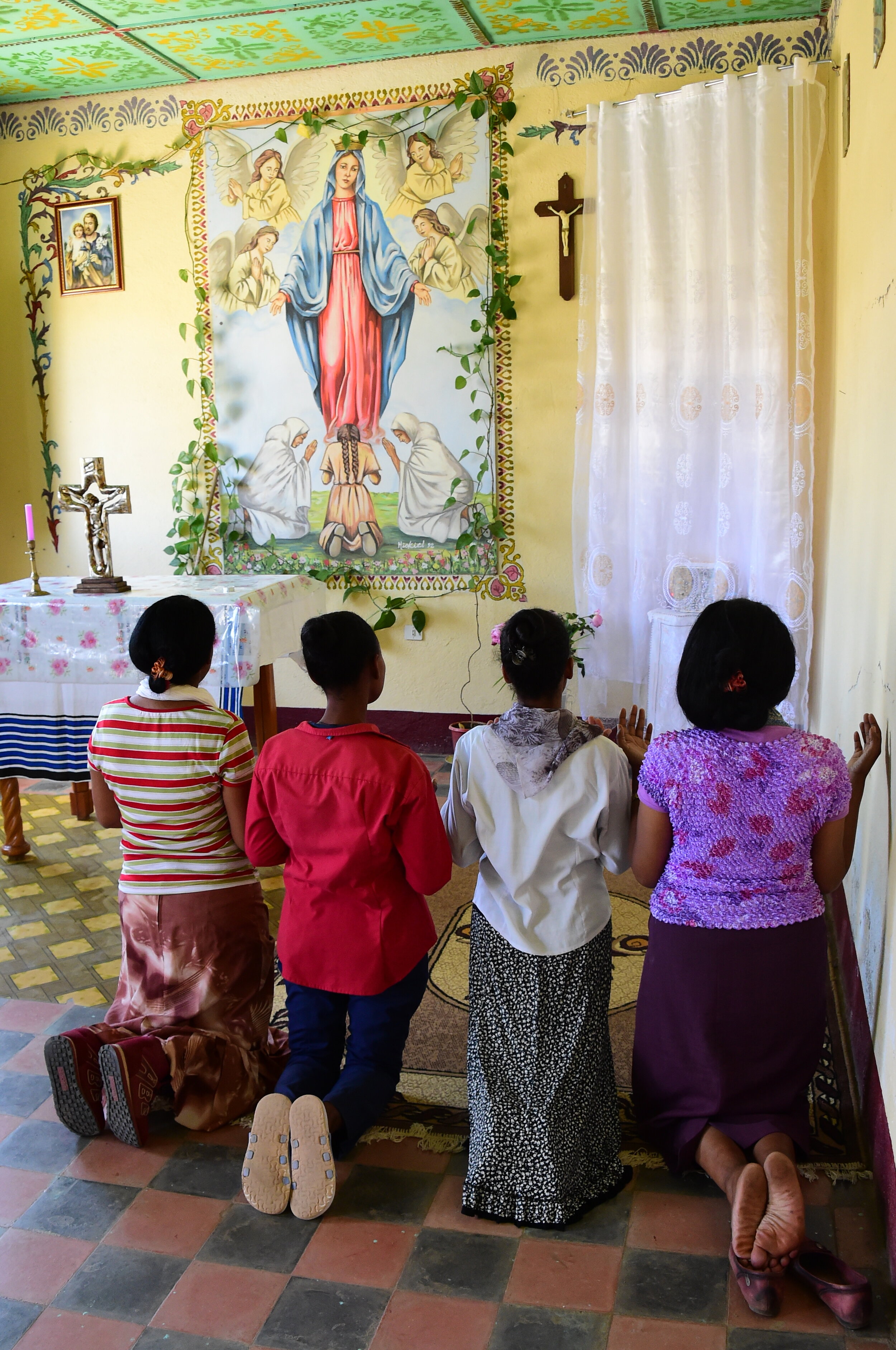Africa's North Korea
Eritrea has the most repressive government in all of Africa. Known as Africa’s North Korea, due to the similarities to the Communist Asian country, Eritrea ranks as one of the worst human rights abusers in the world. This lack of respect for human dignity is evident in the government’s dealings with the Church.
By ACN Staff
Eritreans. (Credit: Aid to the Church in Need)
Eritrea is one of the world’s most repressive countries. The government there does not respect the dignity of individual people. Eritrea is a small country located in Eastern Africa, by the Horn of Africa. The country is on the coast of the Red Sea and is boarder by Ethiopia, Sudan and Djibouti. Eritrea has very close ties with Ethiopia, having been previously governed as part of Ethiopia and gaining independence in 1993. Ethiopia and Eritrea had been involved in a deadly boarder conflict with each other, but this has ended in recent years. A slight majority of the Eritrean population are members of the Eritrean Orthodox Tewahedo Church, which had previously been part of the Ethiopian Orthodox Tewahedo Church until 1993. There is also a significant minority of Muslims and an increase in the numbers of people converting to Pentecostal Protestantism. Somewhere between 120,000-160,000 Eritreans are members of the Eritrean Catholic Church. The government in Eritrea is mostly atheistic in its outlook, and would prefer for there to be no religions in Eritrea with a very similar mentality on religion as the Chinese government.
Eritreans praying. (Credit: Aid to the Church in Need)
Eritrea’s government is extremely repressive. Both men and women must carrying out mandatory military service that can last a lifetime. The government often imprisons people without trial. There has been no independent media in the country for around 20 years. The media is not the only avenue the Eritrean government has tried to control. They have also shut down Catholic-run education and health facilities. In June 2019, the Eritrean authorities sized and shut down 21 Catholic hospitals and healthcare facilities. This was part of a wider trend of closing Catholic hospitals. Over 200,000 people in Eritrea had received healthcare from Catholic institutions. It was pointed to Aid to the Church in Need (ACN) by Father Mussie Zerai, who coordinates work in Eritrea from Rome, that:
“There is no justification for the actions of the regime. It punishes those who are taking care of the poorest of the poor… Most of the patients weren’t Catholics, but Orthodox Christians, Muslims, and members of other religions. The facilities are often located in remote areas”.
One of the worst examples of the Eritrean governments treatment of religious institutions is the case of Patriarch Abune Antonios of the Eritrean Orthodox Tewahedo Church. Patriarch Antonios became the third Patriarch of the Eritrean Orthodox Tewahedo Church in 2004. The Eritrean government had been treating the Eritrean Orthodox Tewahedo Church like a state church, interfering in its affairs. Patriarch Antonios requested that this should stop. In response the government removed him from office and then placed him under house arrest in 2006. He has been under arrest ever since and has never faced trial. Over this Lent please keep Patriarch Antonios and all Christians imprisoned for their faith in your prayers. Since 2016, ACN has provided around €1 million to projects in Eritrea.


